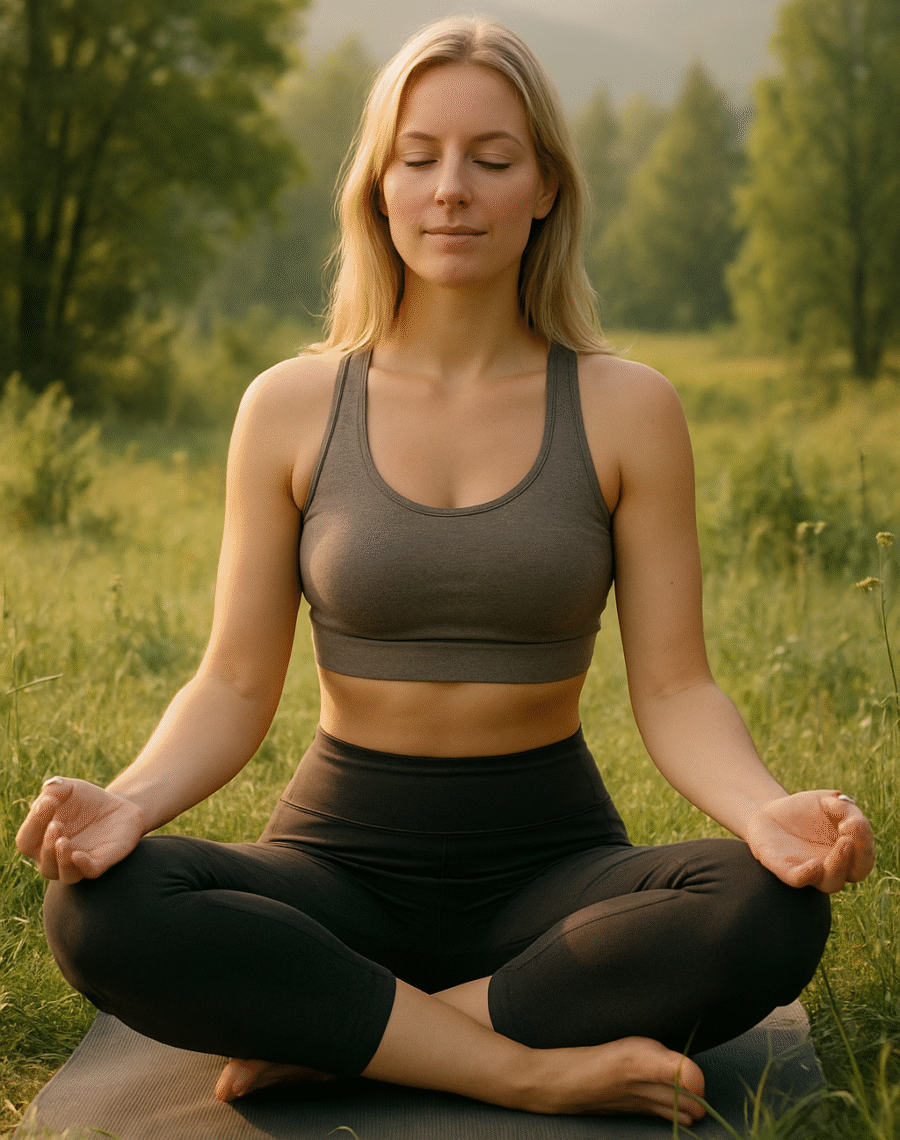Relax Better: 4 Simple Meditation Tips
If you’ve ever found yourself lying awake at night, thoughts racing, and a deep craving for calm, you’re not alone. Life can be overwhelming, with constant deadlines, distractions, and endless to-do lists. It’s easy to forget how to pause and relax , but don’t worry meditation can help.
Meditation isn’t about becoming a different person or achieving a perfect state of peace. It’s about creating a little space in your day to simply be. And the best part? You don’t need to be a monk or meditate for hours to enjoy the benefits. Let’s explore some simple and effective meditation tips.
Why Meditation Matters in a Busy World
The Need for Mindfulness in Our Lives
We live in a fast-paced world where we’re constantly plugged in checking emails, notifications, and to-do lists. Our minds rarely get a break. No wonder we feel overwhelmed! Meditation offers a much-needed pause, helping us reconnect with ourselves.
Mindfulness, the core of meditation, allows us to tune into the present moment. Instead of worrying about tomorrow or dwelling on the past, mindfulness helps us simply notice what’s happening inside and around us. Even five minutes of mindful breathing each day can make a huge difference.
Common Obstacles to Meditation
Many people get discouraged when they start meditating, thinking they’re doing it wrong. Thoughts like, « I can’t stop thinking, » or « I’m not calm enough » are common. But the truth is, a wandering mind is completely normal. Relaxation doesn’t mean clearing your mind entirely it means observing your thoughts without getting caught up in them.
Once you let go of the pressure to be perfect, meditation becomes much easier and more enjoyable.
The Powerful Benefits of Meditation
Physical Health Benefits
Meditation can work wonders for your body, too. If you often feel tense whether it’s tight shoulders or a restless mind meditation helps you relax your muscles and calm your nervous system. A big benefit of regular meditation is better sleep. As your mind settles, your body follows, making it easier to fall asleep and stay asleep.
Mental Clarity and Emotional Balance
Life can feel chaotic at times, but meditation offers a way to bring clarity. Instead of reacting emotionally to every little trigger, meditation teaches you to pause and reflect. This space between feeling and reacting is where peace truly lives. With practice, you’ll understand yourself better and handle emotions more calmly.
Long-Term Transformation Through Consistency
The key to meditation is consistency. Even meditating for just two minutes a day can make a difference. These small moments of calm can lead to long-term benefits. Over time, you’ll find yourself less reactive, more present, and better equipped to handle life’s challenges.
4 Simple Meditation Hacks for Beginners
Hack #1: Start with Just 3 Minutes
One of the biggest myths about meditation is that it needs to be long. Starting with 30 minutes can feel overwhelming for beginners. Instead, start with just 3 minutes. Here’s how:
- Set a timer for 3 minutes.
- Find a comfortable spot and sit down.
- Close your eyes, and simply breathe.
That’s it! No pressure, no perfection. You might be surprised how much those 3 minutes can help you relax.
Hack #2: Focus on Your Breath
Your breath is always with you, and it’s the perfect anchor for meditation. When your mind starts to wander (which it will!), gently bring your focus back to your breath. Try this breathing technique
- Inhale slowly through your nose (count to 4).
- Hold for a second.
- Exhale gently through your mouth (count to 6).
Repeat a few times, and let your body relax with each breath. It’s that simple—and effective!
Hack #3: Create a Calm Space
Your environment plays a big role in how well you can meditate. A cluttered space often reflects a cluttered mind. But you don’t need a fancy setup—just find a small corner where you can feel at peace.

Here are a few tips for creating your calm space:
- Light a candle or incense.
- Add a soft pillow or blanket.
- Place a calming object nearby (like a plant or a picture).
This little sanctuary can become your go-to spot for relaxation.
Hack #4: Use Guided Meditations or Apps
If you’re new to meditation, a little guidance can go a long way. Apps like Insight Timer, Calm, or Headspace offer free guided sessions that are perfect for beginners. Pick a session that fits your mood and let someone lead you into a peaceful state. It’s like having a friend guide you, making the process feel less intimidating.
How to Stay Consistent with Your Meditation Practice
Make Meditation Part of Your Routine
Meditation works best when it becomes a daily habit. Choose a time that works for you—whether it’s in the morning before your coffee, during lunch, or just before bed. Try setting a reminder, and soon it’ll feel like second nature.
Track Your Progress
After each meditation, take a moment to jot down how you feel. Even one sentence can help you notice improvements over time, like better sleep or more patience. These small wins can keep you motivated to stick with your practice.
Overcoming Resistance and Distractions
Some days, you might not feel like meditating, and that’s okay. The important thing is to show up anyway. Even if it’s just for one minute, it still counts. Meditation doesn’t have to be perfect—just keep going. If you miss a day, don’t worry. Simply begin again the next time you have the chance.
Bonus Tips to Deepen Your Relaxation
Add Gentle Movement to Your Meditation
If sitting still feels challenging, you can combine meditation with gentle movement. Try:
- A short yoga flow.
- A slow walk with no phone.
- Stretching while focusing on your breath.
These moving meditations offer the same benefits and might feel more natural for you.
Try Calming Music or Nature Sounds
Sometimes, playing calming music or nature sounds during meditation can help quiet your mind. You can try sounds like:
- Ocean waves
- Rainfall
- Soft piano music
Let the gentle sounds carry you deeper into relaxation.
Journaling Before or After Meditation
Writing can also help you process emotions and thoughts. Before or after meditating, take a few minutes to journal. Ask yourself questions like:
- What’s on my mind?
- How do I feel now?
- What do I need today?
This simple practice can give you more clarity and a deeper sense of connection with yourself.
Final Thoughts: Meditation is a Skill You Can Build
Meditation doesn’t require hours of free time or a perfect space. The most important thing is to start. Whether it’s just for a few minutes a day or longer sessions, the benefits will gradually start to show in your life.
Remember, meditation is a journey. Don’t worry about being perfect—just keep showing up, and trust that, over time, it will make a positive difference.
Take a deep breath, close your eyes, and begin your practice today. Your peace is waiting!



Laisser un commentaire